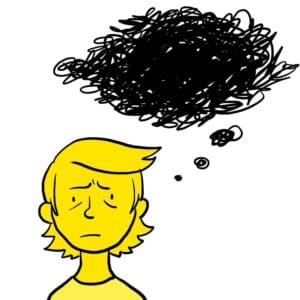Talking Mats is delighted to welcome a new Training Associate, Jess Lane. Jess has written this blog to introduce herself to the Talking Mats community. Welcome, Jess, we’re thrilled to have you as part of team TM!
Hello! My name is Jess and I am thrilled to be introducing myself as a newly appointed Training Associate for Talking Mats.
About Me
I am a Specialist Speech and Language Therapist with a clinical background in Learning Disabilities and Paediatric Mental Health. I also work for the Royal College of Speech and Language Therapists (RCSLT) as a Research and Outcomes Officer, where I help to build research capacity, capability and culture within the profession. I am currently studying towards a Clinical Doctorate in Professional Health Studies, looking at the use of Talking Mats for facilitating the direct and meaningful involvement of children in care planning.
Talking Mats has been a huge part of my career to date. This began in my hometown of Gloucester, where I worked as an SLT in an Intensive Support Service for children and adults with learning disabilities. Changes in my personal circumstances saw me relocate to Scotland in 2022, where I worked across Specialist Child and Adolescent Mental Health (CAMHS) Services in and around Glasgow. Most recently, I worked at a National Child Inpatient Psychiatric Unit (CIPU), supporting children with severe and enduring mental illnesses.
Talking Mats in CAMHS
Since completing my Licenced Training last year, I have been working with Talking Mats to deliver Foundation Training for CAMHS teams across the UK, as well as driving an upskilling initiative for Specialist Children’s Services locally in Glasgow. I have found that Talking Mats provides children with a safe space to explore topics that they might otherwise feel unable to communicate about, in a way that is highly supportive, sensitive and impactful. This is encompassed by feedback from a recent patient, who wanted to share that “using a Talking Mat is easier than talking because talking about how you feel can be difficult”.
Many of the children admitted to CIPU present with transient communication difficulties that can exacerbate the impact of mental ill health. Some children present with underlying communication difficulties that were not apparent in the community setting. Other children do not present with communication difficulties, but find it extremely difficult to think about, or share their views on, sensitive topics. Because of this, Talking Mats have been used extensively by the multidisciplinary team on CIPU to:
- Facilitate the direct involvement of patients in goal setting and care planning
- Adapt and extend traditional mental health inventions, including talking therapies
- Support capacity assessments, assessments of mental state and medication reviews
- Improve engagement with local advocacy services as part of the CTO process
- Adapt and extend assessments such as the Child Occupational Self-Assessment Tool
- Improve access to psychoeducation for patients with anxiety and/or depression
- Improve engagement with meal planning for patients with an eating disorder
- Support the differential diagnosis process for mental illnesses such as catatonia

Using Talking Mats in an acute mental health setting has transformed the way clinicians from across Nursing, Psychiatry, Dietetics, Occupational Therapy, Physiotherapy and Psychology engage with the children about their care and treatment. Feedback from the clinical team, children and their parents/carers has been overwhelmingly positive. Talking Mats are now used routinely on the unit to support children’s access to (and engagement with) therapeutic intervention as part of their wider recovery, as well as ahead of all multidisciplinary team meetings and case conferences to ensure each child’s voice is heard and acted upon.
I am so pleased to have joined the Talking Mats team and am very much looking forward to supporting other people to use Talking Mats in a range of settings. Stay tuned for a follow up blog on how I have used Talking Mats as part of a post-diagnostic package of support for autistic children and young people, designed to support more focussed, strengths-based conversations around what it means to be autistic, in line with the core principles of neurodiversity affirming practice.
 Online training login
Online training login 



